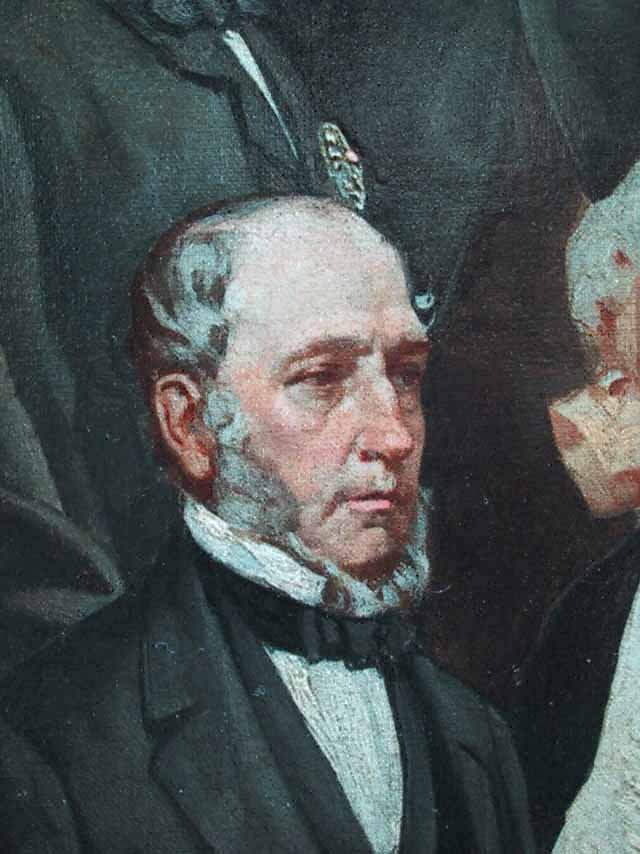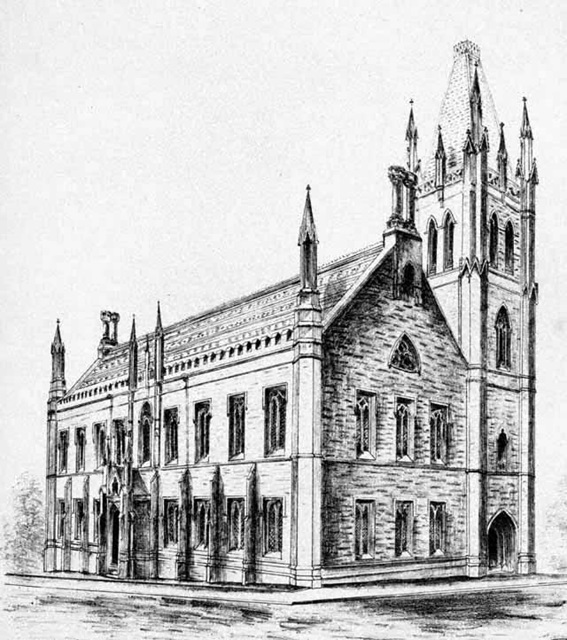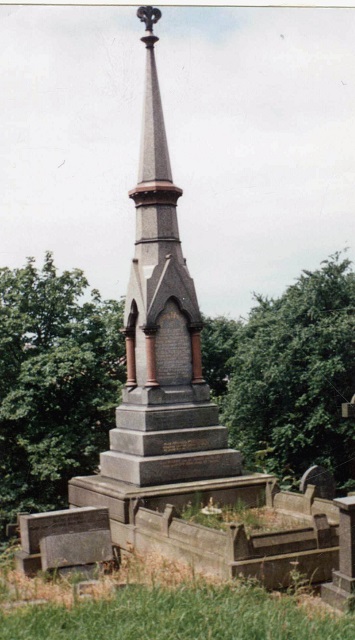James Pilkington
Member of Parliament for Blackburn 1847-1865

James Pilkington MP
James was born on the 29th of August 1804 to James and Mary. James senior was a cotton merchant and only two of his three daughters and two of his six sons survived to adulthood - the sons being James and his younger brother William. James and Mary were members of the original Independent Church formed in the old Chapel street Chapel, Blackburn in the year 1778. Both James and William were educated at Hoole's Academy, King Street. James, later, became a strong Liberal and Non-conformist. Although he was not a great orator he would stand up and advocate the policy of free trade and the freeing of religion from state patronage.
James and William purchased the original Park Place Mill. In 1845 the erected a large mill on adjoining land. Later in 1858 they built a three-storey winding and warping mill but these premises were destroyed by fire in 1871. In 1847 Park Place Mill employed one thousand four hundred and fifty people and when almost all Blackburn's mills were closed or working short time the Pilkingtons succeeded in keeping their weavers fully employed. They were one of the largest employers at the time of the incorporation of Blackburn. James and William, together with their father, were numbered among the men who had made Blackburn.

Park road School endowed for by James Pilkington MP in 1851
In 1851 largely at his own expense, James, with the assistance of his brother and brother-in-law erected Park Road Day and Sunday Schools near their works, on the edge of the town's moor. For many years the schools were the centre of much of the social, religious and political life of the town. James had not only built the schools but also maintained them until 1872 when the buildings were transferred into the names of trustees as a gift.
James had first appeared as a candidate for parliament in the Free Trade election of 1847 when, together with John Hornby, Conservative and Free Trader, they were returned with a large majority. James sat through three parliaments over a period of eighteen years but was defeated in 1865 whereupon he retired from public life. Whilst in Westminster, James had been attacked and robbed when walking to his apartment in the early hours of the morning after a debate in the House. He received serious head and facial injuries but quickly recovered bearing the marks to his dying day. Today this would be called a mugging but in 1862 it was called garroting which lead to widespread panic in London. New legislation was brought in making sentences much harsher and reversing the trend of rehabilitation back to punishment.
James was a Justice of the Peace and the deputy lieutenant of the County. He divided his time between his home at Park Place in Blackburn and Swinethwaite Hall in Bedale, Yorkshire. James had married Mary Jane Skaife on the 10th of May 1831 and they had four sons three of whom died in infancy and a fourth, Edward, who died at the age of thirty nine in Vienna. They also had two daughters - one Ann Jane, who had been engaged to be married but the engagement had been broken off. Neither party married. Ann Jane was killed in her early forties in a carriage accident in 1875. Their second daughter, Mary Elizabeth married twice - her second husband taking the name Pilkington. He was knighted and sat as the Liberal Member of Parliament for Southport. Tragically their daughter was shot by an insane French soldier whilst doing war work in Bologne, her husband was killed at the Battle of Jutland.

The grave of James Pilkington at Blackburn old Cemetery
Mary Jane died in 1865. James died at Swinethwaite Hall in 1890 at the age of eighty five. At probate the proceeds were £147,925-17s.-8d.
Much of the above information is taken from an article in the Blackburn Times dated the 25th January 1930, also Wikipedia and Ancestry.
All images from Cottontown.
Added to Cottontown 6th October 2022.
Janet Burke

